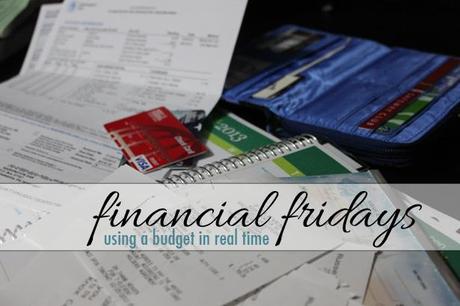
So now comes the big question…once you’ve set up a budget, how the heck do you make it actually work? How do you know that it’s realistic? How do you stick with it?
Well, the first thing to remember is that it’s going to take you a little bit of time to adjust to living on a budget — especially if you’ve never been on one before.
I've been budgeting my money ever since I started making it and I still have trouble staying on top of my budget sometimes, and, like any new habit, it takes time to get used to budgeting your money. It’s going take time (maybe a little, maybe a lot) to get used to actually paying attention to where your money goes and what you’re spending it on and remember that sometimes you’re gonna have to say, “No. I don’t have the money for that.”
As a general rule, I say give it three months.
Like a new workout routine or a new diet or anything else, it takes more than just a couple of weeks for something to really stick. Give it three months and at the end of those three months, reevaluate.
What part of your budget worked and what parts didn’t? What parts of the budget did you underspend and what parts of your budget did you have a tendency to overspend? Very objectively look at the parts of your budget that may need to be increased or decreased and adjust things accordingly.
With some of your mandatory spending like bills and food, there may be some fluctuation. You may spend $100 one month and only $80 another month. For things like this, I say keep your estimations high. It's always better to have extra left over than to be scrounging for cash at the end of the month (or halfway through).
When it comes to your discretionary spending items, be careful. It's really easy to rationalize. You look at how much you spend on clothing or on eating out or on entertainment and realize there needs to be an adjustment. Say you're a big movie buff. It can be tempting to up your budget to make sure it keeps up with your love of film, but you need to look at discretionary spending in terms of the bigger picture.
My big one is eating out. I'm single, so it's pretty normal for people to get together for lunch or dinner. There are also nights I just don't feel like cooking or nights where I run from work to the gym to another event and the only way I'll be able to eat before 10:00pm is if I pick something up on the way (unless I plan ahead and pack something, but I'm not always very good about that). As a result, my eating out budget is the one that is most often overspent. There have been many times where I've considered upping it in order to keep up with how much I eat out, but then I take a step back and look at it objectively.
It's healthier for me to buy groceries and make most of my meals. It's also less expensive, and it's good practice for when I one day have a family, because, as expensive as eating out for one person is, it's a lot more when you add a husband and kids. And at some point I'm going to have to get past the "I don't feel like cooking so I'll get takeout" phase because that doesn't always work with a family. And so I keep my eating out budget where it is and resolve to make a better effort at keeping things in the black the next month (still not doing so hot, but progress is being made).
It’s difficult. I’m definitely not saying it’s easy, especially when friends want to go out to happy hour and to movies on the weekends and to lunch during the work week. It’s really easy to overspend, particularly in some of those discretionary categories, but if you stick with it, in the long run, you’ll be a lot happier because not only will you have a paycheck that will help you pay for rent and other necessities, you’ll have multiple thousands saved in the bank.
As for how to actually stick with it, again, it’s a matter of opinion, personality, and personal preference.
Some people like spreadsheets. Some people like computer based programs like Quicken. Others like web based programs like Mint.com. It really depends on your personality. Are you good about knowing how much you’ve generally spent in a week or a month? Or do you need to keep track of it day-by-day, transaction by transaction to keep yourself from constantly seeing red? Are you constantly on the go and in need of something that travels with you? Or do you have the time to sit down and go over stuff at home?
We’ll go over these various options in a bit more in detail in the next couple of posts as we explore some of the ins and outs of setting up the budget and determining your budgeting style.
Do you have a money question? Send me an email at shadesofshayes[at]gmail[dot]com with "Financial Fridays" in the subject. I'd love to hear from you!
 ----------
----------Like what you're reading? Consider liking me on Facebook or following me on Twitter!
The post Financial Fridays: Using a Budget in Real Time appeared first on Shades of Shayes.
